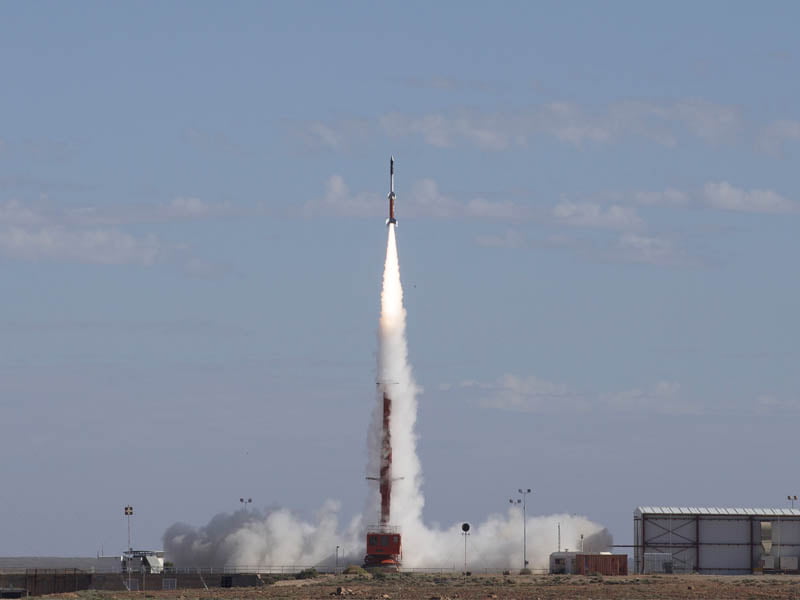A report on the local space industry that is expected to guide the creation of an Australian space agency has been delivered to the federal government and is expected to be made public next week.
The expert group’s review of Australia’s space capability was set up last July, just months before the government revealed it would move to create a national space agency.
After receiving about 400 submissions and holding a number of public consultations, the group submitted its report on time last week.

The report will guide the government’s space policy, and space agency funding is expected to be included in the May’s federal budget.
“The government received the expert reference group’s report into the review of Australia’s space industry capability in late March. It is currently considering the report and appropriate next steps, and will respond in due course,” the spokesperson told InnovationAus.com.
The group was led by former CSIRO chief Dr Megan Clark and included space startup founders Flavia Tata Nardini and Dr Jason Held. It was tasked with reviewing industry capability and developing a long-term plan for growth.
The report is expected to include Australia’s potential areas of advantage, regional and international collaboration, capability gaps, strategies to promote Australian companies and how the space agency should function and operate.
The hopes of the Australian space sector are riding on the report, with a desire for the space agency to be given adequate funding to function properly, and to help to grow the industry.
Australian space pioneer Andrea Boyd, who works in the International Space station Flight Control in Europe, said she hopes the report provides close details on how the space agency would operate.
“I’m hoping for the best person in the world for the job: Dr Megan Clark to be officially announced head of agency. And for Australia to take an offer to the table and sort two bilaterals and one partnership in the first six months and to start a small headquarters office for administration in Canberra and a medium-sized engineering centre with room for growth in Adelaide at Tonsley,” Ms Boyd told InnovationAus.com.
“Then I want to see good people recruited for the day-to-day operations and project management, and a dedicated board of experts and advisors.”
There is concern in the industry that the agency would not be adequately funded. Expectations for how much the space agency would require range from $40 million to $100 million per year.
Gilmour Space Technologies CEO Adam Gilmour said it was important the agency has enough funding to support local players, rather than just act as a bureaucratic body.
“The proactive approach would be reasonably well funded, and what they do would be to actively go out and look for space companies to help and collaborate with, and partner with and fund technology research,” Mr Gilmour told InnovationAus.com.
“It would be an agency that has in its objectives that they outsource things they need to build the local industry. That’s what I hope our space agency does,” he said.
“Even if it doesn’t get a lot of money, that it uses it to support space companies financially and technically in Australia.
“I’m worried that it will just be a bureaucracy with very little funding – a few people managing policy. And that would be a disaster. that’s not going to help the country get going.”
The amount of funding could make or break the space agency, an Australian Strategic Policy Institute report found earlier this year.
“The success of the agency will depend on what it’s required to achieve and its level of funding. The announcement needs to be backed up by strong government commitment in the agency’s charter and funding,” senior defence strategy and capability analyst Malcolm Davis wrote.
“If the substance is not there to back the government’s rhetoric, there’s a strong risk that this latest attempt to kickstart Australia’s greater participation in space will fall flat, like previous efforts.”
The Australian government revealed in October last year that it would be moving to launch a national space agency, but provided few details, instead tasking the expert reference group with developing the blueprint.
The federal Opposition has also pledged to create an Australian Space Agency, allocating $13 million for the body as part of a big $35 million policy package for the sector. This includes $18.5 million in funding for four Australian Research Council Space Industry Research Hubs, and a Space Industry Innovation Council to act as an advisory board for the agency and set an industry-wide agenda.
It’s been a big year already for the Australian space sector, with a number of big funding rounds and partnerships for the burgeoning group of startups in the industry.
South Australia-based Fleet Space Technologies recently scored a Dutch government grant to fast-track its “world-first” Internet of Things network for farms, while Queensland rocket company Gilmour Space Technologies signed a deal with NASA.
South Australian Satellite Internet of Things startup Myriota also recently closed a huge $15 million funding round in March, led by Boeing HorizonX Ventures.
Do you know more? Contact James Riley via Email.

